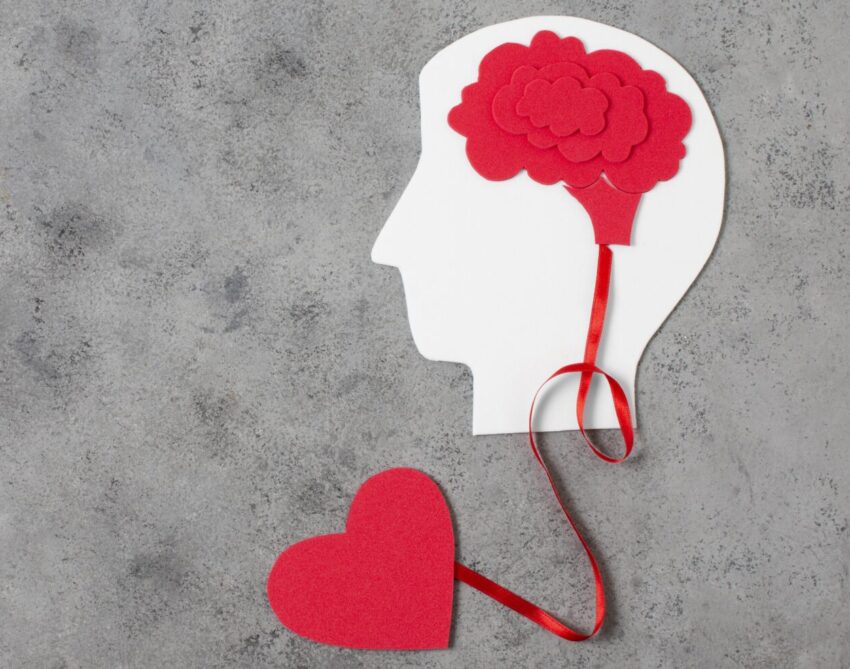Is it truly essential to be emotionally intelligent? Haven’t we long been indoctrinated with the notion that survival in this world hinges on being logical, business-savvy, and financially astute rather than emotionally attuned? Then why the shift towards prioritizing Emotional Quotient (EQ) as well?
In my opinion, one catalyst for this shift is the evident decay in our world over recent months and years. From ongoing conflicts and wars to rampant violations of human rights, all transpiring under the gaze of a supposedly intelligent system.
Consider also our mental well-being and relationships – issues often swept under the rug to project strength and composure.
So, to grasp the necessity of emotional intelligence, ask yourself:
Do you seek fulfilling personal and professional relationships?
Do you aspire to effect positive change and lead an enriched life?
Have you ever yearned for a stress-free existence, extending the same wish to those around you?
If your answer to these questions is a resounding ‘Yes!’, then you hold the key to why emotional intelligence matters. Those endowed with it possess a valuable asset that not only propels personal growth but also facilitates uplifting others.
Emotional intelligence often carries a negative connotation, with some labelling it as fostering ‘oversensitivity’ or ‘drama’ in social settings where composure is expected. Yet, this misinterpretation stems from a lack of understanding of what emotional intelligence truly entails.
What is Emotional Intelligence?
You are ‘Emotionally Intelligent’ if you can control and manage your emotions or behaviour, understand the temperament of other people you interact with, and respond smartly and appropriately as per the need of any situation.
Emotional Intelligence guides you to respond to any personal or professional challenge using your deep understanding of human behaviour and the knowledge of what drives you or people around you to do something or act in a certain way.
While everyone possesses varying degrees of emotional intelligence, certain traits define individuals who exhibit high EI.
Let’s briefly understand a few traits which make you emotionally intelligent.
Emotional intelligence leads to better communication

Emotionally intelligent individuals excel in communication due to their active listening skills, empathy, and ability to express emotions effectively.
They navigate conflicts with composure and seek mutually beneficial resolutions while remaining attuned to nonverbal cues and adapting their communication style to diverse situations.
Emotionally intelligent individuals demonstrate superior empathy

Emotionally intelligent individuals demonstrate superior empathy by intuitively understanding and resonating with others’ emotions.
They listen attentively, picking up on subtle cues to grasp the underlying feelings behind words or actions. This heightened sensitivity allows them to offer genuine support and validation, creating a safe space for open expression.
Emotionally intelligent individuals are adept at perspective-taking, putting themselves in others’ shoes to comprehend diverse viewpoints.
Emotionally intelligent individuals make exceptional leaders

Emotionally intelligent individuals make exceptional leaders due to their ability to inspire, motivate, and connect with others on a deeper level.
With a keen understanding of their own emotions and those of their team members, they lead with empathy and authenticity, cultivating a culture of trust and collaboration.
These leaders excel in communication, actively listening to their team members’ concerns and providing constructive feedback with empathy and respect.
Emotional Intelligence fosters stress management

Emotionally intelligent individuals possess the resilience and coping strategies necessary for effectively managing stress. Through self-awareness, they recognize their own stress triggers and responses, allowing them to implement proactive measures to mitigate stressors before they escalate.
These individuals excel in self-regulation, employing techniques such as deep breathing, mindfulness, and positive reframing to maintain emotional balance during challenging situations.
Moreover, their strong interpersonal skills enable them to seek support from others, fostering a network of social connections that provides additional resources for stress management.
Emotionally Intelligent people are better at conflict resolution

Emotionally intelligent individuals are adept at conflict resolution due to their ability to understand, manage, and navigate emotions effectively. They approach conflicts with a calm demeanour and open mind, actively listening to all perspectives involved.
Leveraging their interpersonal skills, emotionally intelligent individuals seek common ground and collaborate toward mutually beneficial solutions.
They are able to diffuse tension and promote understanding, ultimately strengthening relationships and fostering a more harmonious environment.
People with high EQ show resilience and flexibility

Emotionally intelligent individuals demonstrate resilience and flexibility through their ability to adapt and bounce back from challenges and setbacks.
Instead of being overwhelmed by adversity, they maintain a growth mindset, viewing setbacks as opportunities for learning and growth.
Emotionally Intelligent people display improved relationship

Emotionally intelligent individuals excel in active listening, paying attention to both verbal and nonverbal cues, which helps them to better comprehend the emotions and perspectives of those around them.
By demonstrating empathy and validating others’ feelings, emotionally intelligent individuals create an environment of trust and mutual respect.
They communicate openly and honestly, expressing their own thoughts and emotions authentically while also being receptive to the feelings and needs of others.
Overall, emotionally intelligent individuals prioritize the cultivation of strong, meaningful connections, resulting in healthier, more fulfilling relationships characterized by understanding, support, and genuine care.
Emotional Intelligence leads to better decision-making skills

Emotionally intelligent individuals exhibit better decision-making skills by integrating their emotions and rational thinking to arrive at well-balanced choices.
By understanding their emotions, they can manage them effectively, preventing impulsive or reactive decision-making.
They weigh the potential outcomes of their choices carefully, considering both short-term and long-term consequences.
This approach results in more thoughtful, informed, and ethical decisions that align with their values and goals, ultimately leading to greater success and fulfilment in their personal and professional lives.
CONCLUSION
In conclusion, the importance of being emotionally intelligent cannot be overstated. Emotionally intelligent individuals possess a powerful set of skills that enable them to navigate life’s complexities with grace, resilience, and effectiveness.
Incorporating emotionally intelligent systems into businesses, governments, and various associations through their human resources could revolutionize global functionality.
Imagine a world where an increasing number of individuals are emotionally intelligent and actively contribute to societal enhancement. In such a world, every human life would hold equal value across the globe, fostering greater tolerance, acceptance, and inclusivity while diminishing discrimination.
Conflict resolution would become a priority, with the brightest minds focusing on peaceful resolutions rather than territorial expansion.
Successful treaties and mutual understandings would abound, fostering trust and reliance between countries and individuals, thus reducing the drive for self-sufficiency through invasion.
On a personal level, individuals would find it easier to let go of troubling matters and cultivate happiness through simple means.
Therefore, the development of emotional intelligence transcends personal growth; it is a cornerstone for unlocking success, fulfilment, and meaningful relationships in our interconnected world.

1 thought on “8 traits that make you an Emotionally Intelligent person”